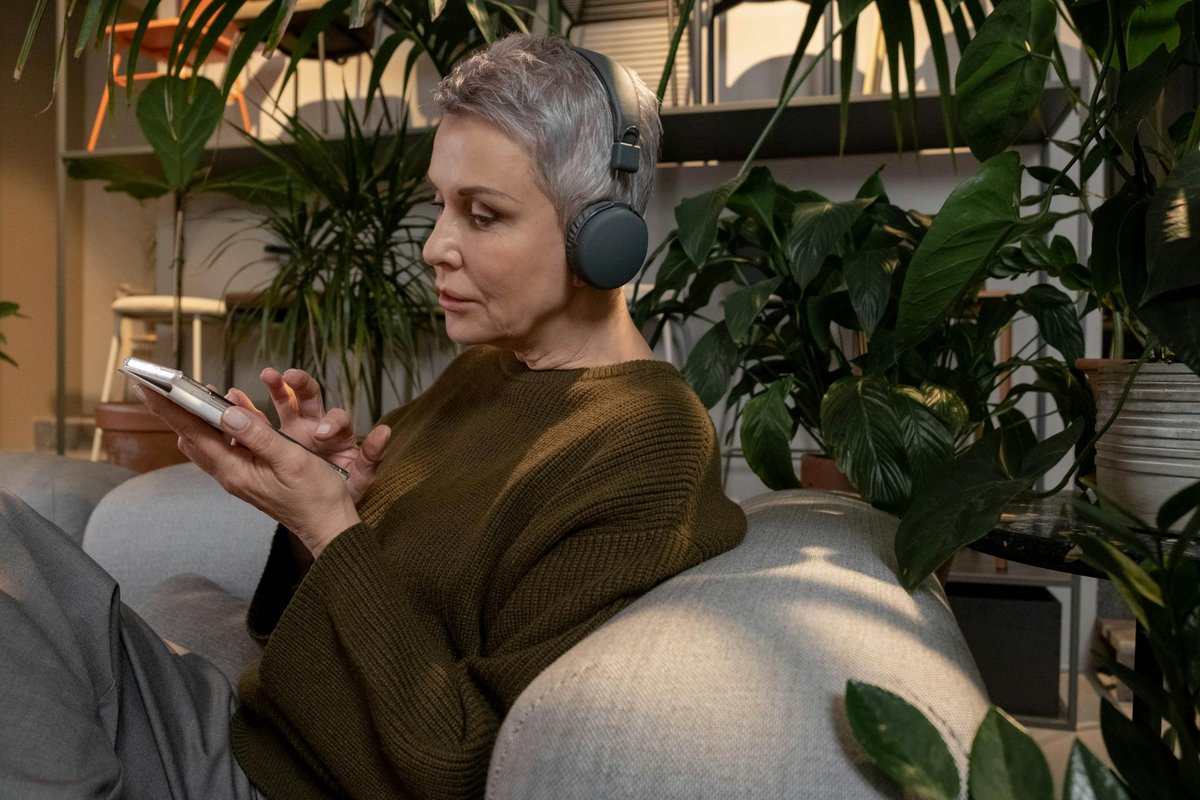- How audio streaming has changed our relationship with music
- What influence do recommendations have on the diversity of our musical tastes?
Our relationship with music has evolved drastically over the last 20 years. By putting the songs within reach of a click, by leaving it to the algorithms to recommend titles to us, the audio streaming platforms have revolutionized the way we consume, but also discover music. For good or for bad ?
Gone are the days when we searched the shelves of record stores looking for the 2-track CD of our dreams. Now, Spotify, Apple Music, Deezer and others analyze our tastes and habits to offer us new titles. If the progress is rather positive, the impact of this technology on our musical choices raises questions. How far does this influence extend? Are we moving towards a fragmentation or a standardization of our tastes? We discuss it in this article.
How audio streaming has changed our relationship with music
With the success of audio streaming, guided listening is booming.
Audio streaming, an essential method of accessing music
Today, in France, 80% of Internet users consume music through streaming. Between 2013 and 2017, usage, both free and paid, tripled. Last year, they increased by another 9%. The colossal consumption alone represents 4000 billion listening volumes! Every day, more than 100,000 new titles are added to the platforms.
How to explain this success ? In the early 2000s, the music market saw CD sales collapse and piracy soar. With the arrival of broadband, the free (and illegal) consumption of tracks has exploded, to the great dismay of labels and musicians.
The industry then adapted to new listening practices: in 2003, Apple began selling songs by title with iTunes. In 2007, Frenchman Jonathan Benassaya created Deezer. A few months later, in Sweden, Daniel Ek launched Spotify. Listening on the move becomes the norm and the very format of the album is called into question.
The advent of assisted listening
To retain listeners, these new players personalize the user experience. They are developing assisted listening, which is based on numerous tools:
- Suggestions based on likes, last listens, preferences of users with similar tastes.
- Weekly selections.
- Thematic recommendations.
- Ambient playlists.
- Artist radio stations.
- Rankings of the most popular songs, and many others.
At Spotify, in 2014, we even mentioned the possibility of a “zero button music player” which would allow the user to let themselves be carried away and no longer choose.
The increasingly passive listener?
At the beginning of the 2000s, the sociologist Antoine Hennion explained that a record is chosen twice: the first time by buying it, the second time by deciding to listen to it. Today, things are no longer so clear and the amount of conscious choice seems to be reduced.

Studies show that guided listening promotes cultural diversity. But does the choice of listeners remain as free as before?
What influence do recommendations have on the diversity of our musical tastes?
Algorithmic recommendations influence our discoveries every day.
How do recommendation algorithms work?
Acting as guides to the jungle of music catalogs, the algorithms analyze the user’s musical tastes, their listening habits, their playlists to offer personalized content. The techniques are varied:
- Collaborative filtering.
- Contextual filtering.
- Language processing.
- Analysis of listening data, consumption behavior, etc.
The more data there is, the more relevant the recommendations: more than 65% of Internet users today say they are satisfied with the songs available in radio playlists.
Towards a standardization of musical tastes?
Algorithms are a huge time saver. But the danger lies in the dehumanization of musical discovery, the creation of “cultural filter bubbles,” and potential isolation of the listener.
Streaming also reinforces many biases, whether statistical, cultural, social, etc. Studies show that:
- If the use of algorithms improves diversity, this only applies to those who listen to little music.
- 20% of the Spotify catalog accounts for 99% of listening.
- It is “impossible not to program mainly artists promoted by the majors”.
- Streaming allows you to discover new artists, but not new genres.


Commercial logic is, moreover, never far away: “more [les plateformes] attract users, the more artists want to join them and vice versa”. Despite everything, the influence of algorithmic recommendations remains relative.
Behaviors differ depending on users
Musical tastes differ from one individual to another and everyone has their own way of using the recommendations made to them. For example, assisted listening concerns both novices and enthusiasts, but the latter use it more.
A 2019 study shows that “more or less guided listening modalities [sont] mobilized according to situations, people’s engagement regimes and their skills”. The Journal du CNRS, in presenting the progress of the Records project, also highlights disparities:
- Some people never follow the recommendations.
- Others rely entirely on algorithms.
- Still others prefer “editorial recommendations”, created by humans (community, artists, platform employees).
In addition, while some have a very varied palette of tastes, others will rather limit themselves to one genre, which adds yet another level of complexity.
Algorithms, friends or enemies of serendipity?
When it comes to music, the listener is not that easily influenced.
Many prejudices
Assisted listening does not have as strong an impact as one might think and there are many preconceived ideas. Against all expectations, studies show that:
- Listeners go, above all, to songs they know.
- They have a solitary and structured practice which is rather reinforced by the platforms.
- Music consumption is more impacted by affect than commercial logic.
- The influence of prescribers (radio, press, streaming) is relative.
The listener keeps an active role: he uses search engines, does his own curation in the discography of artists, stores songs in playlists (private in particular). Thus, autonomous listening represents, and this is a pleasant surprise, 76% of uses.


Humans, vectors of discovery
Algorithmic recommendations have internal limits (the famous “filter bubbles” mentioned above) and external limits (the auditors remain autonomous). Their influence on our discoveries must, today, be tempered.
When it comes to music, listeners are more willing to trust humans: “forms of autonomous exploration and human recommendations (….) seem to produce more lasting relationships with the music discovered”.
Editorial recommendations also have a real impact, even if they tend to favor already popular artists. Created by artists, users or the platforms themselves, they are almost akin to recommendations from friends or record stores and bring together the best of both worlds when they are put forward by algorithms.
Guided listening, for its part, only predominates in certain genres, such as blues or jazz, music deemed “edgy”. Their use also depends a lot on the context: in the evening, for example, we do not listen to the same thing as when alone.
In the end, each source, human or computer, brings something different. It is up to the Internet user to sort things out and the good news is: they already do it very well.

2